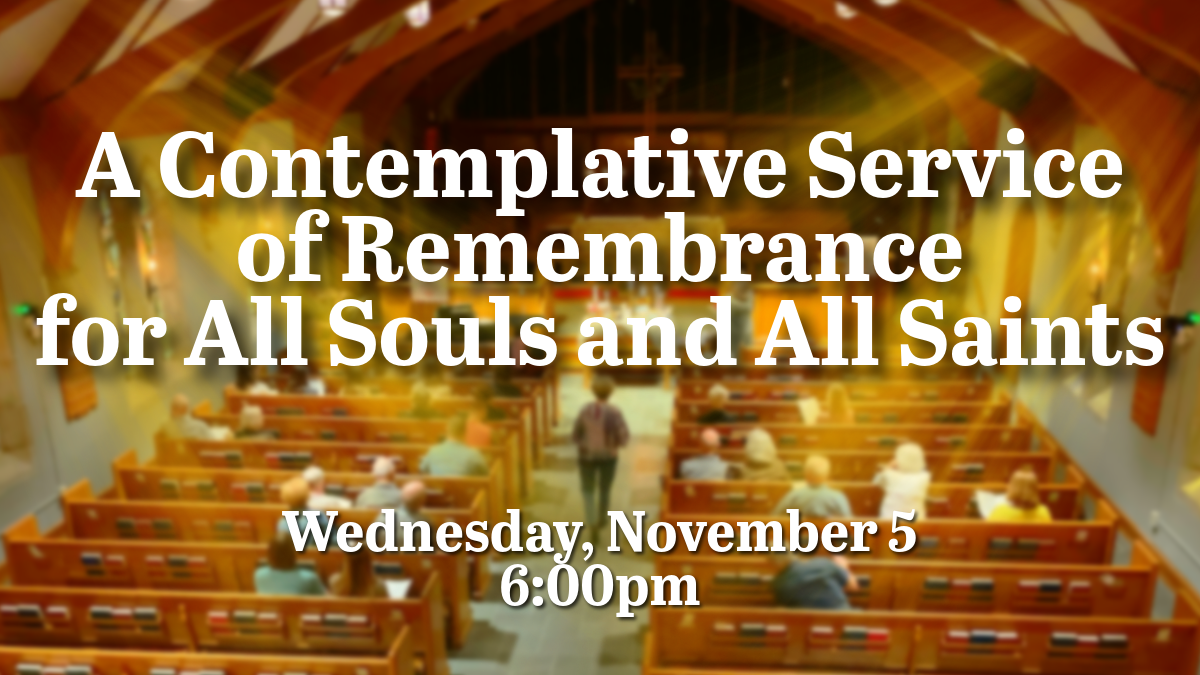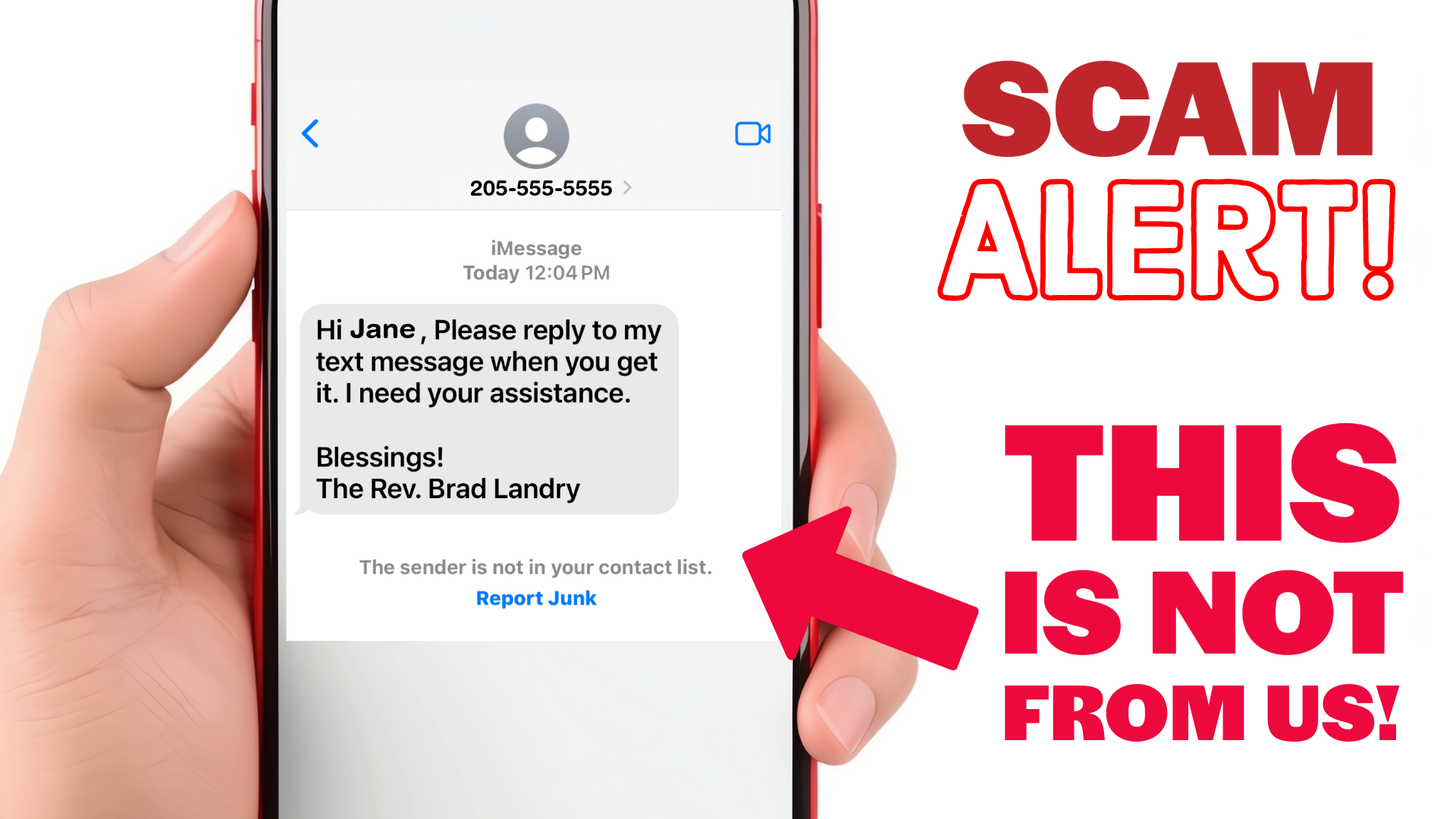The Good Place
The Rev. Charles Youngson
June 11, 2023
Proper 5, Year A Matthew 9:9-13, 18-26
“The Good Place”
For a while now, people have been telling me I would enjoy a TV show called The Good Place. It ran for four seasons on NBC from 2016-2020. I’ve been watching it on Netflix recently, and my friends and family were right. A season and a half in, I’m loving it. It truly is my kind of show, a comedy about the afterlife that weaves in a lot of philosophy and ethics. The show stars Kristen Bell as Eleanor, who dies in an embarrassing shopping cart accident as a young woman and awakens in the Good Place. The problem is that Eleanor knows she was selfish and mean in life, and she soon starts to wonder if perhaps she wound up in the Good Place by mistake. Then she befriends three others there, who gradually realize that their lives on earth weren’t as pure as they imagined. Could it be that they all really belong in the Bad Place?
One of my favorite aspects of the show are the characters’ flashbacks to their life on earth and seeing their faces as they realize, “Oh, maybe I wasn’t such a good person after all.” Like when Tahani, a tall, beautiful philanthropist realizes she was only raising billions for charity as a way of competing with her rock star sister. Or when Chidi, the kind and brilliant ethics professor realizes his inability to make decisions (because of all the ethical considerations involved) was actually hurting people.
The show reflects a very popular understanding of ethics and the afterlife among religious and non-religious alike, that life on earth is a kind of game where we earn points for good behavior and lose points for bad behavior. When we die, the game ends, and if we’ve earned enough points, we receive an eternal reward, and if we haven’t, we receive eternal punishment. In the theistic version, God is the divine referee and scorekeeper who determines our ultimate destination. But is that the vision of God and eternity that Jesus taught and modeled by his actions?
The gospel reading from Matthew challenges that notion. Here we find Jesus eating dinner with tax collectors and sinners, even inviting the tax collector Matthew to follow him. We see him break norms as he heals a hemorrhaging woman and revives a little girl who had died.
The gospel reading got me thinking about that word “sinner.” It’s a word I’ve wrestled with during my Christian journey. My discomfort with it began when I started attending Vacation Bible School at my grandmother’s church. I grew up in the Episcopal Church, where I rarely heard that word, even though it does appear in the Bible and the Prayer Book. But my grandmother’s church was of a different denomination, a large and influential one in these parts. And at VBS I was told I was a sinner in need of a savior. I can remember resisting that label. After all, I was a good little boy. Maybe I fought with my brothers or talked back to my mother once in a while, but I wasn’t a sinner, right? That seemed like such a harsh, ugly word, one that didn’t fit who I was deep down.
In the time of Jesus, the label sinner was applied to a broad category of people. It was used to refer to anyone who was either morally or ritually unacceptable in religious society. That included the usual suspects--thieves, prostitutes, and so on--but it could also include those who did business with the occupying Roman government. Sinners were impure and therefore had to be avoided lest their impurity contaminate you. And yet, here was Jesus hanging out with them around the dinner table.
Jesus lived in a religious world in which righteousness was equated with purity. To be in right relationship to God involved following strict laws concerning everything from when you washed your hands to whose home you entered. And when a law was violated, there was a complicated system of sacrifices that help restore a person to purity and inclusion in the religious community. Being a sinner meant being excluded.
We live in a different time, place, and culture, but we are not all that different. We have our own culturally specific rules and regulations about how we’re supposed to live. And we use shaming and shunning to enforce those rules. “You mean you don’t rinse and dry your aluminum cans before putting them in the recycling bin? What kind of monster are you?” But seriously, because human beings depend on social inclusion for survival, we also learn to exploit the fear of being excluded to manipulate others.
We’re like the characters on The Good Place. We fear that if people really know us, they will reject us and exclude us. We project that same fear onto God. We think, “If God really knew me, God would reject me, and punish me, maybe even for eternity.”
Jesus appears in Galilee with a different vision. He doesn’t say that sin isn’t real or that its consequences don’t cause real suffering. He doesn’t say that God turns a blind eye to injustice and cruelty. But he proclaims a new way of addressing sin and sinners. The usual way of being righteous, that is, being in right relationship with God, involved being pure by avoiding sin. And when sin inevitably occurred, then the only way to restore a person was by sacrifice. The bigger the sin, the bigger the sacrifice that was needed. But Jesus draws on his own tradition and quotes the prophet Hosea. He reminds the people that God says, “I desire mercy, not sacrifice.” And then Jesus declares, “I have come to call not the righteous but sinners.”
It would seem that by the time of Jesus, the system of Temple sacrifice had become corrupt. This beautiful gesture of offering to God the fruits of one’s labor as a sign of love and devotion had become merely transactional. It had become an obstacle to true relationship with God. The tax system was even worse as tax collectors enriched themselves by taking a cut of what they collected. Maybe that’s why Jesus chose Matthew the tax collector to follow him. Weren’t tax collectors the most transactional of all? If he could teach Matthew a new way of relating to his neighbors, he could teach anyone. And lest we think this was a problem confined to Judaism in the time of Jesus, look at how quickly Christians turned the sacraments into transactions and then even turned the life, death, and resurrection of Jesus into biggest transaction of them all.
As much as we love accounting metaphors, relationships are not about transactions. Want to ruin a relationship, start keeping score. Relationship are about love and trust. It’s true that love and trust must be based on real words and deeds, but the actions themselves are not the point. They are the outward and visible sign of the relationship. So why would our relationship with God be different? Why would God keep score when what God really wants is to be in relationship with us.
Jesus had no interest in excluding and punishing sinners. The justice that Jesus embodied was not about credits and debits, rewards and punishments, the pure and the impure. It was about showing mercy to the suffering, redeeming the sinful, healing the wounded, including the marginalized, and restoring the broken. In a word, Jesus embodied grace. No one was beyond his mercy, neither the sinner, nor the leader of the synagogue, whose daughter had died. To that father, he proclaims, “She will live.” And to the woman with the hemorrhage, he says, “Take heart, daughter; your faith has made you well.”
Jesus shows us that righteousness is a relationship, not a transaction. Righteousness is loving our neighbor, loving our God, and loving ourselves. Righteousness is not about getting it right all the time. It’s about humble faith. Because when we approach God with an attitude of humble faith, God can make us well. God is the only one who knows us completely. And God is the only one who loves us completely. And because I believe this, I can confess that I am a sinner, not out of shame, but because I know my true identity is not “Sinner,” but “Child of God.” And I know that Jesus loves all of us sinners. He likes hanging out with us and having us over for dinner. He loved us sinners enough to die for us, so that we could stop trying to earn points with God and instead enjoy a relationship with God now and into eternity. And that’s a good place to be.
More Announcements






